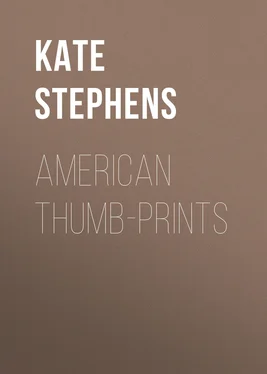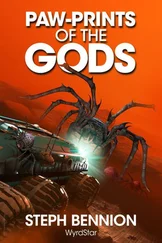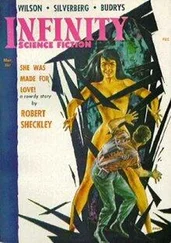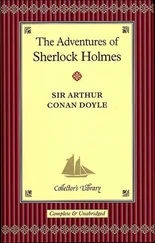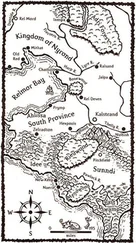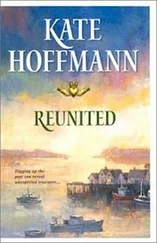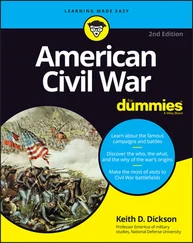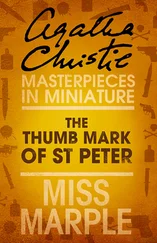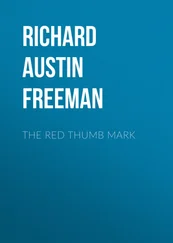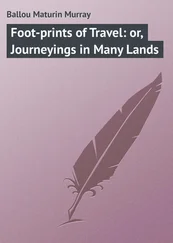Kate Stephens - American Thumb-prints
Здесь есть возможность читать онлайн «Kate Stephens - American Thumb-prints» — ознакомительный отрывок электронной книги совершенно бесплатно, а после прочтения отрывка купить полную версию. В некоторых случаях можно слушать аудио, скачать через торрент в формате fb2 и присутствует краткое содержание. Жанр: foreign_prose, foreign_antique, на английском языке. Описание произведения, (предисловие) а так же отзывы посетителей доступны на портале библиотеки ЛибКат.
- Название:American Thumb-prints
- Автор:
- Жанр:
- Год:неизвестен
- ISBN:нет данных
- Рейтинг книги:3 / 5. Голосов: 1
-
Избранное:Добавить в избранное
- Отзывы:
-
Ваша оценка:
- 60
- 1
- 2
- 3
- 4
- 5
American Thumb-prints: краткое содержание, описание и аннотация
Предлагаем к чтению аннотацию, описание, краткое содержание или предисловие (зависит от того, что написал сам автор книги «American Thumb-prints»). Если вы не нашли необходимую информацию о книге — напишите в комментариях, мы постараемся отыскать её.
American Thumb-prints — читать онлайн ознакомительный отрывок
Ниже представлен текст книги, разбитый по страницам. Система сохранения места последней прочитанной страницы, позволяет с удобством читать онлайн бесплатно книгу «American Thumb-prints», без необходимости каждый раз заново искать на чём Вы остановились. Поставьте закладку, и сможете в любой момент перейти на страницу, на которой закончили чтение.
Интервал:
Закладка:
In speaking of the West we must realize its vast territory and the varying characteristics of its people. Of what is here set down I am positive of its entire truth only so far as one institution is concerned, namely, the titulary—that is, the University of Hesperus—which recalleth the city bespoken in the Gospel according to Matthew—that it is set upon a hill and cannot be hid.
TWO NEIGHBORS OF ST. LOUIS
There was never in any age more money stirring, nor never more stir to get money.
The Great Frost of January, 1608”Women have seldom sufficient serious employment to silence their feelings: a round of little cares, or vain pursuits, frittering away all strength of mind and organs, they become naturally only objects of sense.
Mary WollstonecraftYou have too much respect upon the world:
They lose it that do buy it with much care.
TWO NEIGHBORS OF ST. LOUIS
The Big Muddy built the fertile regions near its course. Dropping in warm low tides mellow soil gathered from upper lands, it pushed the flood of the sea farther and farther to the south. Non palma sine pulvere has been the song of its waters—no green will grow here without my mould.
It was at its wonder-work those millions of suns ago when the tiny three-toed horse browsed among the grasses of what is now Kansas. Its great years can be measured only by the dial of God. All the monstrosities of the eld of its birth it has survived, and like a knowing, sentient thing—a thinking, feeling thing—it has been expanding and contracting, doubling up and straightening out its tawny body, each one of its numberless centuries pushing its uncounted mouths farther toward the submerged mountains of the Antilles.
In its thaumaturgy it formed vast prairies and rolling lands. Upon its gently-packed earth forests shot up. Subterranean streams jetted limpid springs, which joined and grew to rivers open to the light of day. Above the heavens were broad and the horizon far away—as far as you outlook at sea when sky and earth melt to a gray, and you stand wondering where the bar of heaven begins and where the restless waters below.
Indians, autochthons, or, perchance, wanderers from Iberia, or Babylon, were here. Then white men came to the flat brown lands, and that they brought wives showed they meant to stay and build a commonwealth. The two raised hearthstones for their family, and barns for herds and flocks. They marked off fields and knotted them with fruit trees, and blanketed them with growing wheat, and embossed them in days of ripeness with haystacks such as the race of giants long since foregone might have built. In their rich cornfields they set up shocks which leaned wearily with their weight of golden kernels, or stood torn and troubled by cattle nosing for the sugary pulp. Such works their heaven saw and to-day sees, their air above entirely bright, beading and sparkling in its inverted cup through every moment of sunshine.
Over this land and its constant people icy northers, victorious in elemental conflicts far above the Rockies, rush swirling and sweeping. They snap tense, sapless branches and roll dried leaves and other ghosts of dead summer before their force. They pile their snows in the angles of the rail fence and upon the southern banks of ravines, and whistle for warmth through the key-holes and under the shrunken doors of farm-houses.
But winds and snows disappear, and again life leaps into pasture-land. A yellow light glowing between branches foreruns the green on brown stalk and tree. The meadow-lark lifts his buoyant note in the air, and the farmer clears his field and manures his furrow with sleepy bonfires and the ashes of dead stalks. Earth springs to vital show in slender grasses and rose-red verbena, and the pale canary of the bastard indigo.
In this great folkland of the Big Muddy, which is beyond praise in the ordinary phrase of men, there live alongside many other types, a peculiar man and woman. They are—to repeat, for clearness’ sake—only two of many types there indwelling, for it is true of these parts as was said of England in 1755: “You see more people in the roads than in all Europe, and more uneasy countenances than are to be found in the world besides.”
The man is seen in all our longitudes; the woman is rarely in any other milieu. She is a product of her city and town. The women of the country have ever before them queryings of the facts of life, the great lessons and slow processes of nature, the depth and feeling of country dwelling. But this city-woman suffers from shallowness and warp through her unknowledge of nature and the unsympathy with fellow humans that protection in bourgeois comfort engenders. She is inexperienced in the instructive adventure of the rich and the instructive suffering of the poor. The basis of her life is conventional.
The dollar to her eyes is apt to measure every value. Let us not forget that in the history of the world this is no new estimate. It was the ancient Sabine poet who advised “make money—honestly if we can, if not, dishonestly—only, make money.” “This is the money-got mechanic age,” cried Ben Jonson in Elizabeth’s day. And the poet of the “Elegy written in a Country Church-Yard” more than one hundred and fifty years ago wrote to his friend Wharton: “It is a foolish Thing that one can’t only not live as one pleases, but where and with whom one pleases, without Money.... Money is Liberty, and I fear money is Friendship too and Society, and almost every external Blessing.”
Конец ознакомительного фрагмента.
Текст предоставлен ООО «ЛитРес».
Прочитайте эту книгу целиком, купив полную легальную версию на ЛитРес.
Безопасно оплатить книгу можно банковской картой Visa, MasterCard, Maestro, со счета мобильного телефона, с платежного терминала, в салоне МТС или Связной, через PayPal, WebMoney, Яндекс.Деньги, QIWI Кошелек, бонусными картами или другим удобным Вам способом.
1
I include “women” because Lucy Stone once told me she draughted some of the Kansas laws for married women while sitting in the nursery with her baby on her knee. Other women worked with her, she said. Their labor was in the fifties of the nineteenth century—at the height of the movement to ameliorate the legal condition of married women.
2
Other societies also have vitality. The sortie of a handful of students one November night following election, a dinner each year celebrates. Grangers supposedly inimical to the interests of the University had won at the polls. The moon shone through a white, frosty air; the earth was hard and resonant. What the skulkers accomplished and the merry and hortative sequent to their furtive feast were told at the time by the beloved professor of Latin, the “professoris alicujus.”
“T. C.’S” HORRIBILES.Jam noctis media hora. In cœlo nubila spissa
Stellas abstulerant. Umbrarum tempus erat quo
Horrenda ignavis monstra apparent. Pueri tum
Parvi matribus intus adhærent. Non gratiorem
Noctem fur unquam invenit. Sed qui veniunt post
Hanc ædem veterem? Celebrantne aliqua horrida sacra
Mercurio furum patrono? Discipuline?
Non possunt! Tuti in lectis omnes requiescunt!
Estne sodalicium studiosorum relevans se
Magnis a curis? Sed cur huc conveniunt tam
Furtivi? In manibus quidnam est vel sub tegumentis?
O pudor! Et pullos et turkey non bene raptos!
Vina etiam subrepta professoris alicujus
(Horresco referens) e cella! Dedecus! Est nil
Tutum a furibus? En pullos nunc faucibus illis
Sorbent! Nunc sunt in terra, tum in ictu oculi non
Apparebunt omne in æternum! Miseros pullos,
Infelices O pueros! Illi male capti
A pueris, sed hi capientur mox male (O! O!!)
A Plutone atro!
Forsan lapsis quinque diebus, cum sapiens vir
Omnes hos juvenes ad cenam magnificenter
Invitavit. Tempore sane adsunt. Bene laeti
Judex accipiunt et filia pulchra sodales
Hos furtivos. Ad mensam veniunt. Juvenes cur
Tam agitantur? Quid portentum conspiciunt nunc?
Protrudunt oculi quasi ranarum! Nihil est in
Mensa præter turkeys! Unus quoque catino!
Solum hoc, præterea nil!
Интервал:
Закладка:
Похожие книги на «American Thumb-prints»
Представляем Вашему вниманию похожие книги на «American Thumb-prints» списком для выбора. Мы отобрали схожую по названию и смыслу литературу в надежде предоставить читателям больше вариантов отыскать новые, интересные, ещё непрочитанные произведения.
Обсуждение, отзывы о книге «American Thumb-prints» и просто собственные мнения читателей. Оставьте ваши комментарии, напишите, что Вы думаете о произведении, его смысле или главных героях. Укажите что конкретно понравилось, а что нет, и почему Вы так считаете.
